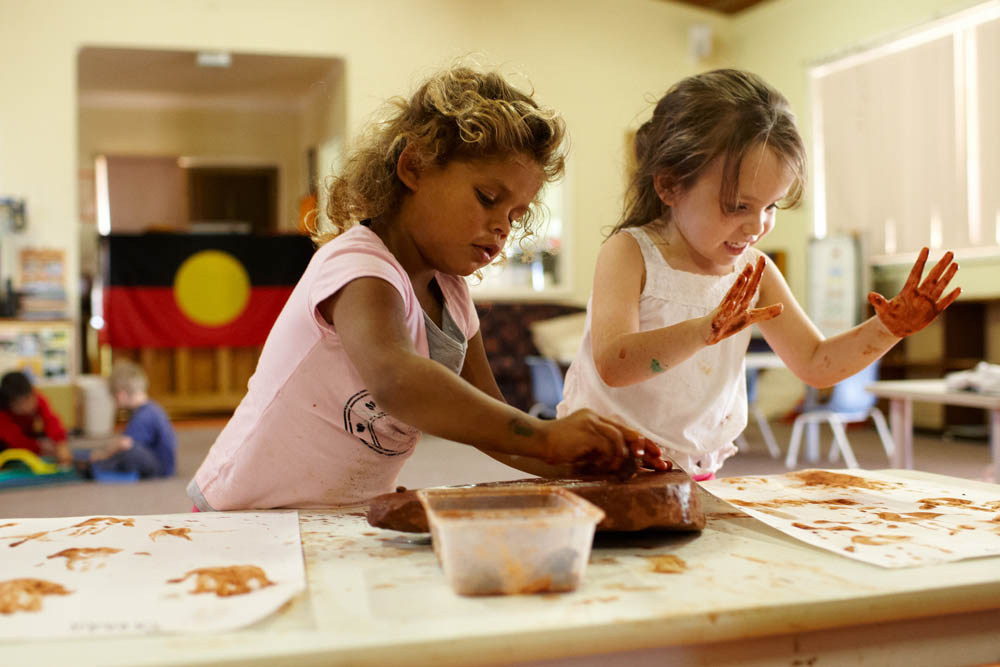If someone asked, “What’s the best kind of childcare?” there wouldn’t be one right answer. That’s because families are different. Some parents work from home, some have long commutes, and some have unpredictable schedules. Kids are different, too. Some thrive in busy group settings, while others need quiet, one-on-one attention. So when it comes to choosing between an au pair, a nanny, or daycare, the real question isn’t “Which one is better?” It’s “Which one fits this family best?”
Understanding what each option offers can make everything a lot easier.
What’s the Real Difference?
All three—au pairs, nannies, and daycare—help parents care for their kids, but how they do it is totally different.
A nanny is someone who comes to your home to look after your child. They might work full-time or part-time. Usually, nannies are local professionals. Families pay them by the hour or offer a weekly salary.
An au pair is a young adult from another country who lives with your family for a set period, usually a year. They help with childcare and some light chores in exchange for a place to stay, meals, and a weekly allowance. Since they’re part of a cultural exchange program, families also help them learn about life in the U.S.
Daycare is a childcare center where multiple kids from different families go during the day. Trained staff run programs based on age, and the setup is often more structured—more like a school, especially for toddlers and preschoolers.
So the main differences come down to location (in-home or center), relationship (employee vs. temporary family member), and cost.
Why Some Parents Go with an Au Pair
One of the biggest reasons families choose an au pair is flexibility. Because au pairs live in the home, they can help during early mornings, evenings, or even weekends—times when daycare centers are closed and nannies might not be available. For families with weird schedules, that’s a big deal.
Also, there’s the cultural bonus. Since au pairs come from other countries, kids get exposed to new languages, foods, and traditions without having to go anywhere. That can help them become more open-minded, curious, and even better at picking up new languages.
Another plus is that au pairs often become part of the family. They’re not just there to do a job—they’re living in the same house, eating at the same table, and celebrating holidays together. That kind of bond can make kids feel extra safe and supported.
Families looking into this route can check out Go Au Pair for details on how hosting works and how it compares to other options. It’s a good place to get real information without all the guesswork.
What’s Great About Nannies
Nannies can be a good fit for families who want care at home but don’t need a live-in arrangement. Since nannies usually have experience—or even training in early childhood education—they’re often prepared to handle anything from diaper changes to homework help.
Some nannies even do extras, like running errands or cooking dinner, depending on the agreement. Because they come to your house, kids don’t have to deal with drop-offs, pickups, or big changes in routine.
It’s also easier for parents to have more control over their child’s daily schedule. If a toddler needs a nap at noon or a certain food at lunch, it’s easy to make that happen. And for babies or kids with special needs, having one consistent caregiver can be a big help.
One thing to keep in mind is cost. Nannies are usually the most expensive option, especially in big cities. Families also have to handle payroll, taxes, and sometimes even benefits.
Why Daycare Works for Many Families
Daycare can be a good choice for parents who want a more school-like setting. The structure and routine help kids learn to follow schedules, interact with peers, and build early skills like sharing and waiting their turn.
Most daycare centers separate kids by age groups, so activities and lessons are matched to their stage of development. They often offer things like story time, music, outdoor play, and even beginner learning like numbers and letters.
Since centers are licensed and inspected, some parents feel more confident knowing there’s a set of rules and trained staff in place. That can bring peace of mind.
On the flip side, daycare hours are usually strict. If a parent’s meeting runs late or traffic gets bad, they might have to rush. Also, kids in daycare are around lots of other kids—which is great for socializing but also means more chances of catching colds and flu.
The Cost Side of Things
Money is a big factor in the decision. In general, daycare tends to cost less per hour than hiring a nanny, especially for one child. But if a family has two or more kids, the total cost of daycare might add up fast—sometimes even more than having an au pair or nanny.
Au pairs aren’t “cheap,” but the cost is usually more predictable. Families pay a set program fee, a weekly stipend, and cover room and board. For the number of hours they’re available—up to 45 per week—it can be more affordable than it seems at first.
Nannies, as mentioned earlier, are usually the priciest option, especially full-time ones with lots of experience. But for families who want someone deeply focused on their child, that price might be worth it.
Thinking About the Kid’s Experience
At the end of the day, the main goal is making sure kids feel safe, happy, and cared for.
Some kids love the buzz of daycare—the games, the group activities, the busy rooms. Others might feel overwhelmed by it and prefer staying at home where it’s quieter. Having an au pair or nanny means the child gets one person to bond with, someone who knows their quirks, their schedule, and what comforts them when they’re upset.
On the other hand, daycare can be great for building social skills. Being around other children every day helps them learn how to make friends, deal with little conflicts, and be more independent.
So much depends on the child’s personality—and what the family values most.
What Matters Most
There’s no such thing as a one-size-fits-all answer to childcare. And that’s actually a good thing. The fact that there are multiple choices means every family has a better shot at finding something that actually works.
Some families want a consistent caregiver who becomes part of their daily life—an au pair might be perfect. Others want an experienced professional who focuses only on their child during the day—a nanny could be the answer. And for families who like the structure and social side of things, daycare might be just right.
The best childcare is the one that fits the family’s needs, not someone else’s idea of what’s best.


